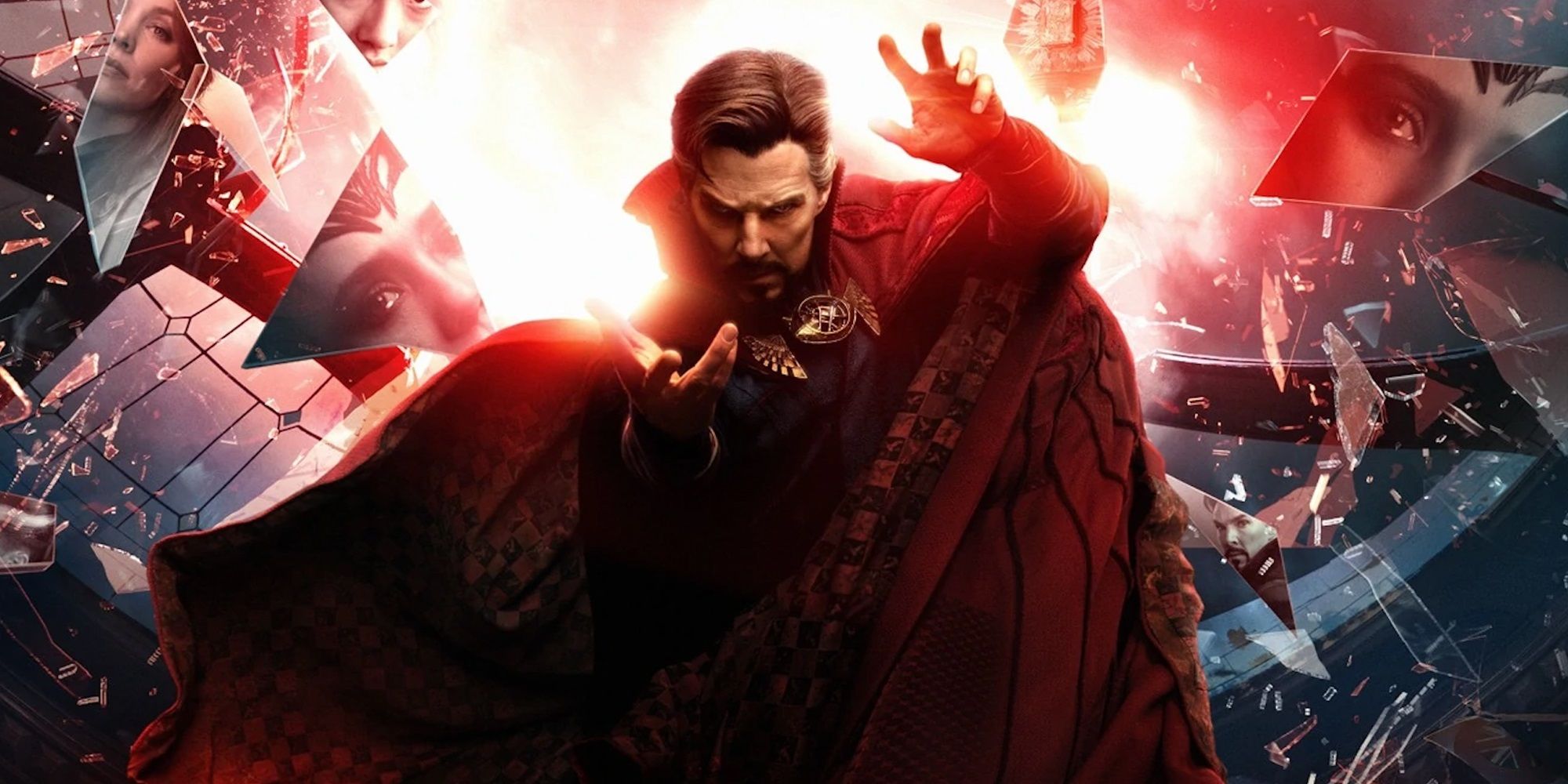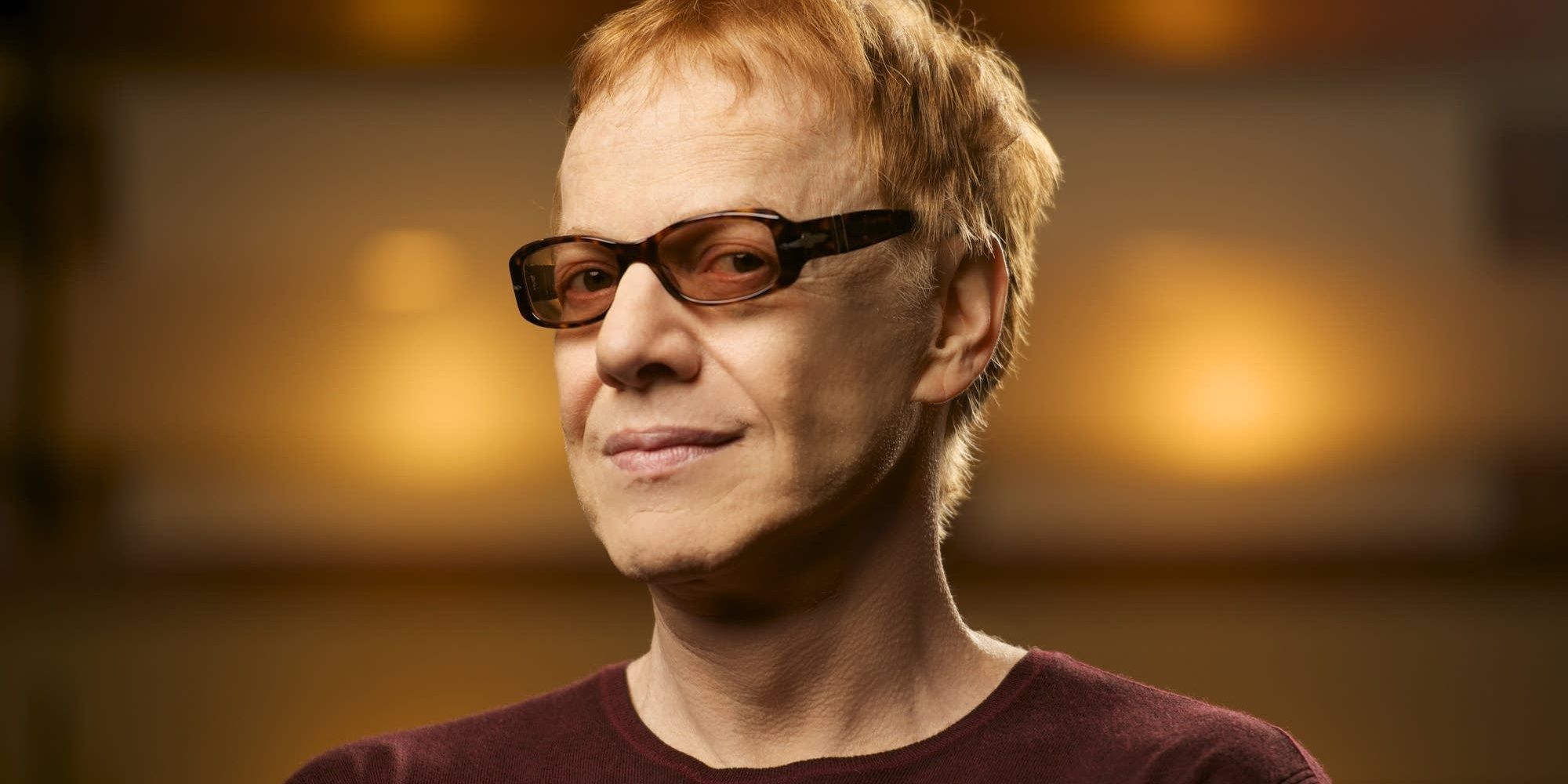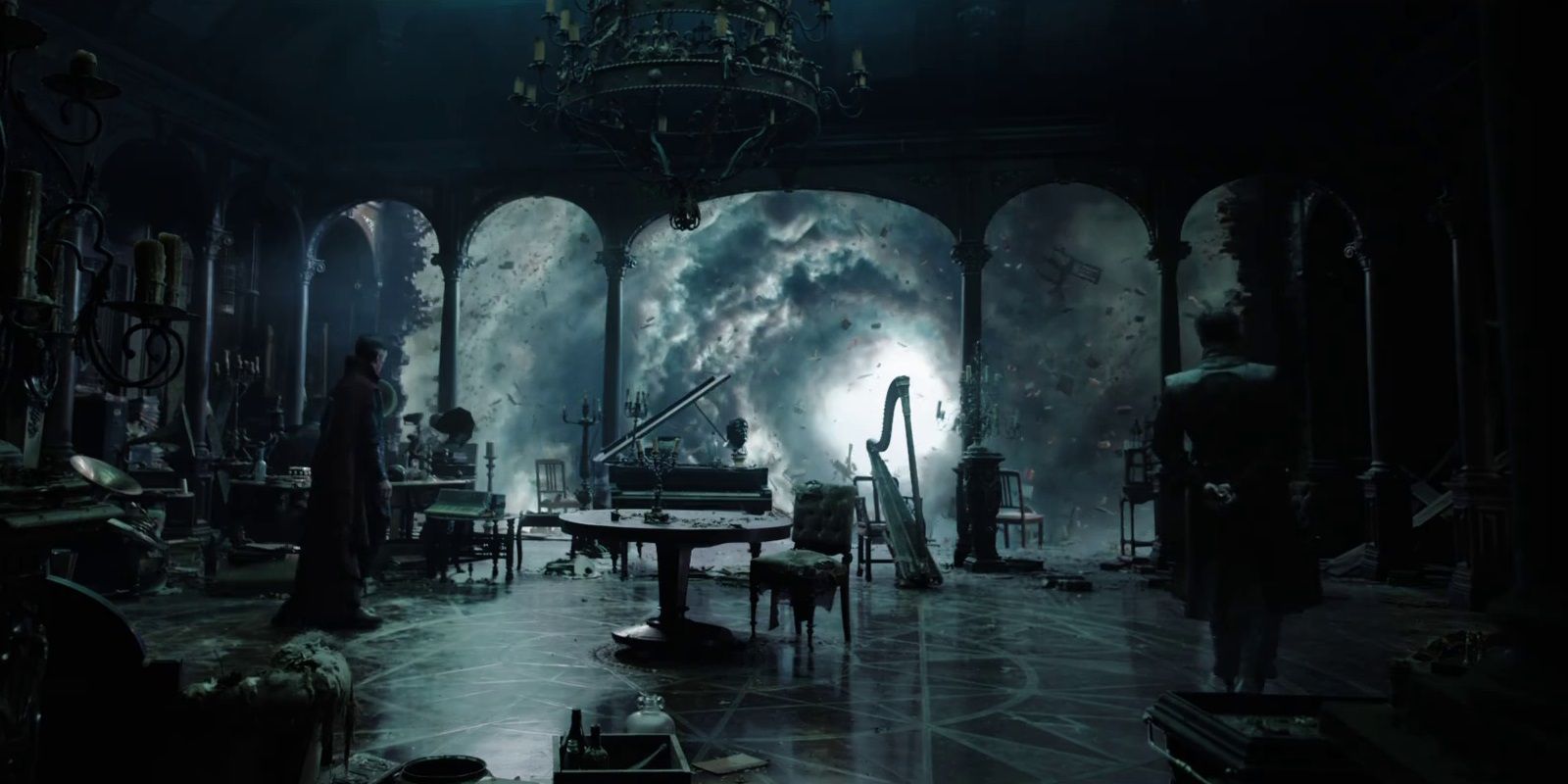Warning: This article contains spoilers for Doctor Strange in the Multiverse of Madness.
Great original scores are hard to come by in today’s blockbuster landscape. Back in the ‘70s and ‘80s, composers like John Williams were penning extraordinary orchestral pieces that audiences still remember today to underscore the on-screen action in hits like Jaws and Raiders of the Lost Ark. Star Wars fans can hum Williams’ iconic tune from the asteroid field chase or the recurring musical motif that announces Boba Fett’s arrival, let alone all the main themes. These days, after half a century of Williams’ influence, blockbuster music has settled into a dull house style. Today’s musical scores usually provide a generic underpinning without triumphantly declaring their presence.
This is a common criticism of the Marvel Cinematic Universe. Some of the MCU’s musical themes stand out, like Alan Silvestri’s Avengers theme or Michael Giacchino’s orchestral revamp of the theme from the Spider-Man animated series, but the franchise’s original scores tend to adhere to the familiar blockbuster house style. The MCU’s most memorable musical moments are usually needle-drops utilizing existing tracks, like Peter Quill’s “Awesome Mix” tape in the Guardians of the Galaxy movies or the contemporizing ‘90s playlist that makes up the Captain Marvel soundtrack.
Marvel Studios’ latest big-screen release, Doctor Strange in the Multiverse of Madness, is a refreshing, long-awaited exception to this rule. The epic, engaging, exhilarating music that the great Danny Elfman composed for the Doctor Strange sequel is by far the greatest in the franchise to date. It’s the perfect intersection between a sweeping superhero score and an unnerving horror score. Plus, a badass electric guitar lick accompanies the opening of Strange’s third eye.
The first Doctor Strange movie was scored by regular Marvel composer Michael Giacchino, who most recently worked on The Batman, one of the other greatest superhero film scores of the year. Giacchino was set to return for Multiverse of Madness when original director Scott Derrickson was attached. After Derrickson dropped out and Sam Raimi was hired to replace him, Raimi brought on his usual composer, Danny Elfman. Elfman had previously worked with Raimi on Darkman, A Simple Plan, Spider-Man, Spider-Man 2, and Oz the Great and Powerful. Giacchino did a fine job with the original Doctor Strange score, which is certainly more memorable than the average MCU music, but Elfman goes above and beyond in Multiverse of Madness (which is hardly surprising, given his legendary status).
Throughout the score, Elfman plunders the musical history of the MCU to mix in key motifs, including Giacchino’s Doctor Strange theme (which is reprised four times throughout the movie). Elfman uses Robert Lopez and Kristen Anderson-Lopez’s WandaVision theme to accompany Wanda, Silvestri’s “Captain America March” to accompany Captain Carter, and Ron Wasserman’s X-Men: The Animated Series theme to accompany Professor X. These themes do a great job of evoking their associated characters, but the score as a whole is pure Elfman.
Pure “Oom-Pah” Elfman
Renowned for his “oom-pah” orchestral sound, Elfman uses distinctive rhythms to bring the spectacle on-screen to life. He doesn’t just use generic tones to suggest danger like most blockbuster composers working today; he gives audiences a bunch of hummable tunes in the Williams tradition. Multiverse of Madness’ zany, fast-paced opening track, “On the Run,” played over America Chavez and a Strange variant fleeing from a demon in the space between worlds, sets the perfect tone for the dazzling interdimensional shenanigans that are about to unfold. It draws the audience to the edge of their seat from the very beginning of the movie, after the Marvel logo wraps up its minute-long run.
Multiverse of Madness is as much of a gonzo, bonkers, shamelessly campy Raimi horror epic as it is a superhero movie, and Elfman’s music has all the hallmarks of a horror score. He bolsters the jump scares with piercing strings. He uses the right amount of silence to create the perfect level of tension. His spooky, fidgety piano melodies call back to one of the composer’s previous scores for a similarly family-friendly horror movie, Beetlejuice. The sinister tune that blares over the horrifying reveal of Wanda’s Darkhold-powered hellscape, titled “The Apple Orchard,” conveys the terror and devastation of learning that the most powerful Avenger has switched to full villain mode.
The musical moment from Multiverse of Madness that is sure to become the most iconic and talked-about in the years to come is the diegetic piece that accompanies the musical note fight. Starting with the kind of creepy, off-key, high-pitched piano chord heard in countless old-school horror movies, this sequence brings Elfman’s music to life – quite literally. When Strange confronts an evil variant of himself in the decrepit Sanctum of a universe he destroyed with an incursion, the two identical sorcerers start magically whipping musical notes at each other off the pages of sheet music. Every time a Strange variant is hit with a barrage of musical notes, Elfman hits the audience’s ear with a barrage of sound. In between bouts of musical punches, Elfman utilizes eerie silence on the soundtrack. This is truly one of the most inventive, compelling, and deeply cinematic scenes in the whole MCU, and it’s all thanks to Elfman’s lively score.



